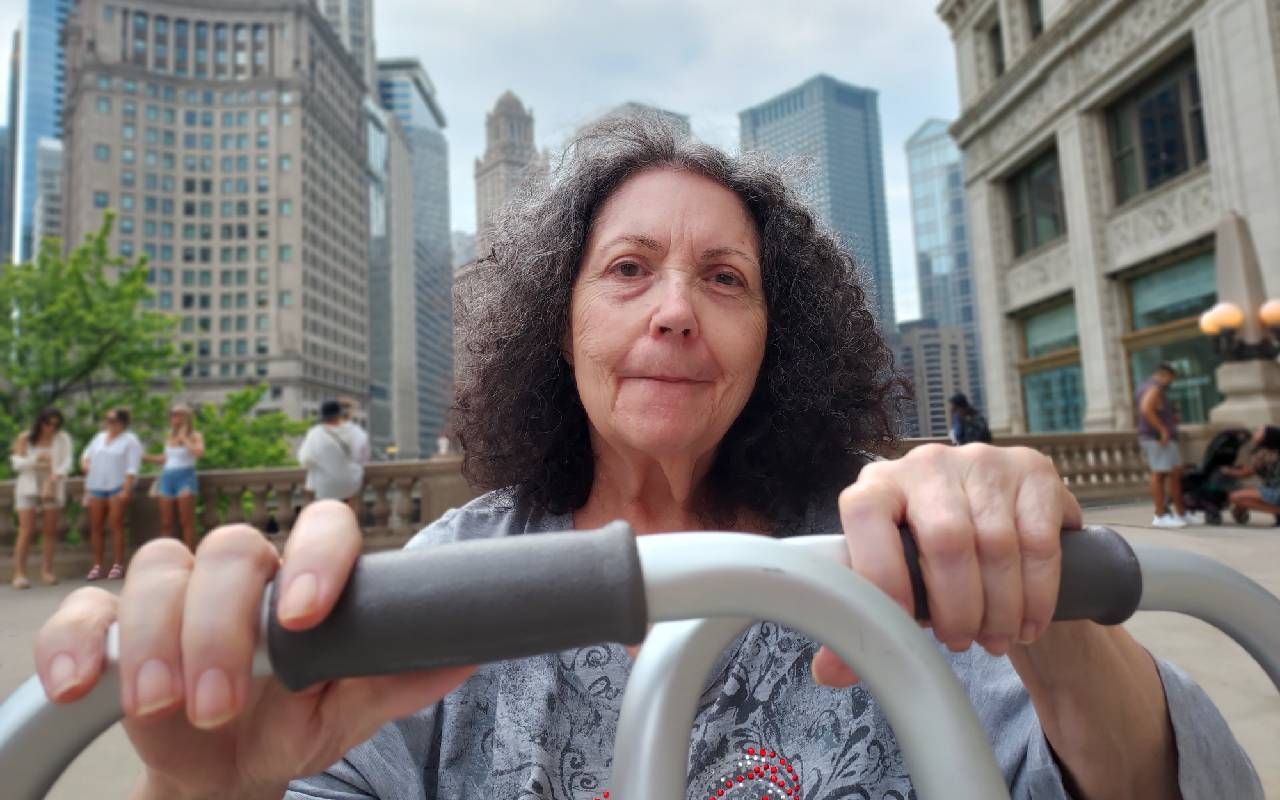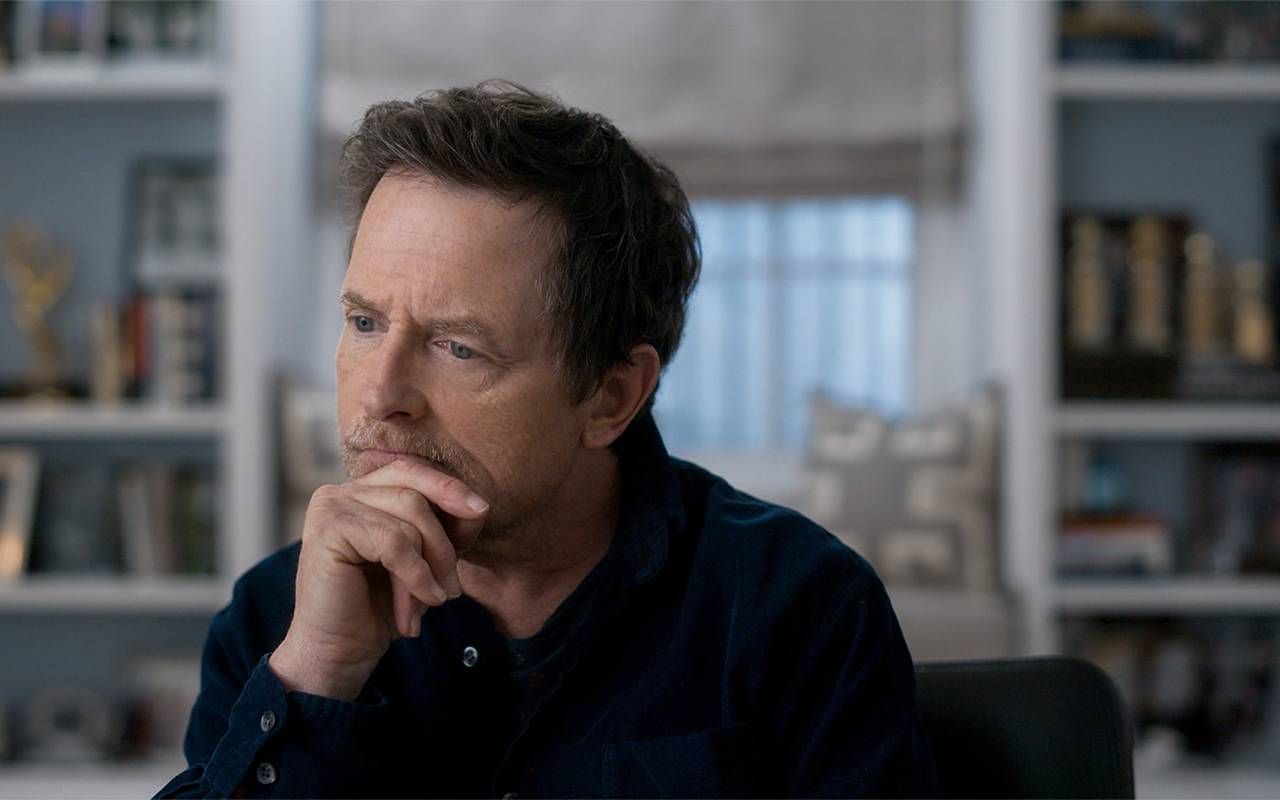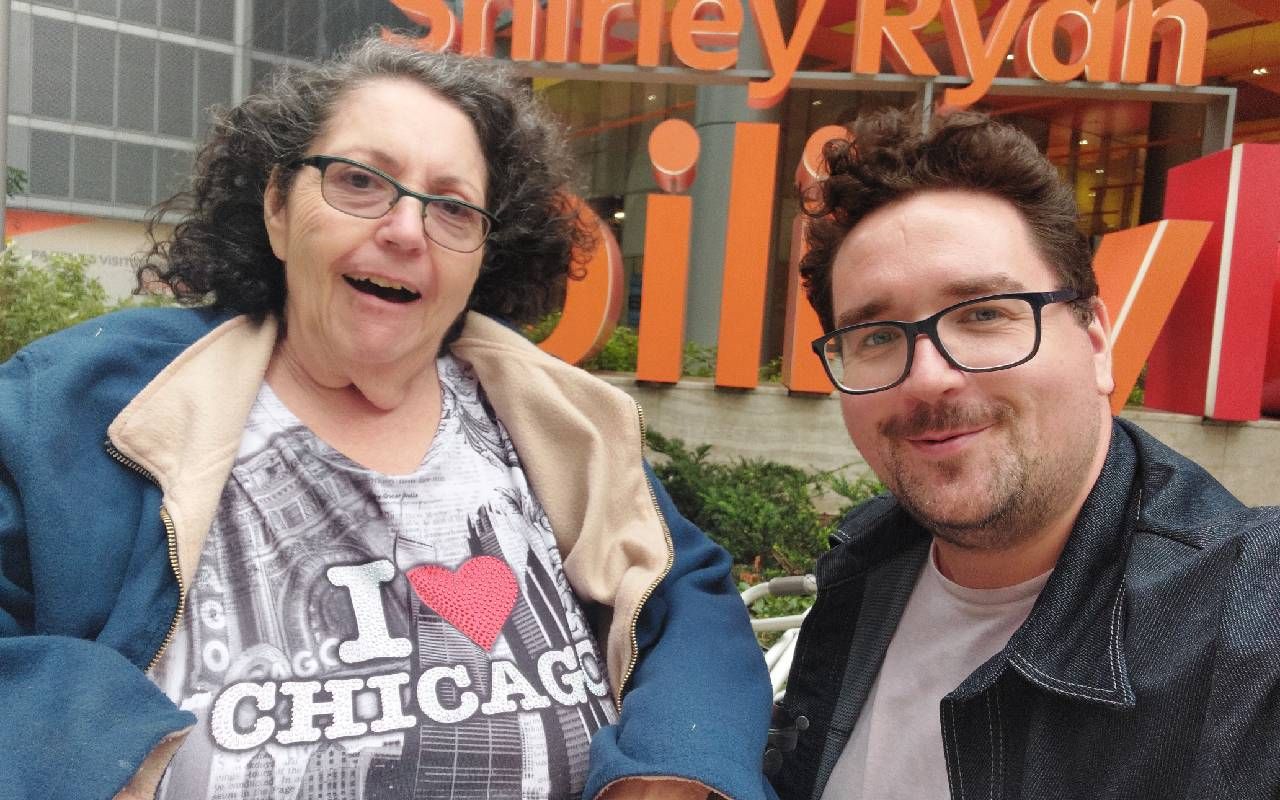A Round of Applause for Walker Users
Both my mother, who has Parkinson's disease, and I wish we had embraced assistive devices for her sooner
Our collective memory of Michael J. Fox swiveling, slipping and dodging near-misses throughout 80s and 90s films and sitcoms was a stark contrast to a viral video of him struggling to take center stage at an appearance around the release of "Still," the documentary about his battle with Parkinson's. When he lost his balance, careening headfirst into a couch, the audience was shocked.

I wasn't. Watching "Still," I'd related to his son, Sam Fox, slightly younger than my forty-one, who watches his dad's steps with the same hawkishness I monitor my mom Janice's. Over seven years since Mom's same diagnosis, her ambulation has degenerated to requiring a variety of assistive devices.
"Embracing this can be more difficult than anything else. Because there is anger, denial and disbelief."
Fox visibly needed a walker. But I empathized with his gamble of foregoing one—our culture tends to greet users of mobility aids as specters of our fragility, laughingstocks and inspirations, simultaneously. The raucous applause when he uprighted himself angered me: with his mobility challenges culturally established, it doesn't seem possible to celebrate the getting up without inadvertently encouraging the falls. And like Marty McFly, he could've faded into a different headline. Injuries from falls are a leading cause of decline. And death. Not only for Parkinson's. I had wished the crowd could have cheered as voraciously if he'd entered on a walker.
Six months later, Fox made a surprise appearance as a presenter at the BAFTA Awards — brought onstage in a wheelchair, by an aide who lifted him to his feet then ensured his steadiness behind the podium before hovering within reach. That radical act of visibility found me as emotional as the entire audience who'd risen to their feet, applause resounding.
Walkers Can Seem Like Conceding Defeat
A common caregiving plight is loved ones refusing walking aids they'd benefit from. "Embracing this can be more difficult than anything else. Because there is anger, denial and disbelief," says Julia Wall, the Michigan Parkinson's Foundation Director of Education, who visits support groups statewide.
Mom didn't lose mobility in an instant. It was incremental. Often, imperceptible. After her diagnosis in her early sixties, we focused on abating dramatic symptoms: night terrors, brain fog, chronic pain. I had blamed depression for her metamorphoses from a rec center regular into this veritable shut-in clocking enough hours sedentary with daytime TV judges to terrify me. I couldn't see how much her debilitation stemmed from uncertainty and embarrassment over newfound unsteadiness.

It's easy to downplay shuffling. Other signs refuse to be minimized. Once, we cut across a quiet street towards a quaint Thai restaurant and stepped up on the curb. She had been in my peripheral vision in a way I hadn't registered until she wasn't. I turned and saw her hit the pavement. Then I checked for blood and helped her up before I probably should have, worried that passersby might gawk.
Once enough stumbles become tumbles, they're all magnified by growing anxiety that butts up against social stigmas and self-image. Soon after, Mom experienced one fall she felt was too innocuous to mention. Any ache from it merely joined her chronic pain medley doctors minimized and advised us to learn to live with. When a limp developed, we buckled and got a cane.
Too late. The unknown hairline fracture on Mom's femur snapped anyway.
Many Avoid Devices Until Accidents Leave No Choice
After emergency surgery, transfer to a rehab facility set the clock ticking; Mom couldn't return to her second-floor walk-up apartment. Between scrambling to make living arrangements, I would sneak Mom gas station ice cream sundaes — I'm just now realizing they probably didn't need to be snuck in. But in those sterile environments, it sure felt like they did.
Mom didn't lose mobility in an instant. It was incremental. Often, imperceptible.
Physical therapists trained Mom on a U-Step, a high-end walker with a brake system to manage gait problems, and a seat for when fatigue comes on fast or a bad freeze's anxiety calls for a reset. But it would take months for her to build the strength and dexterity to use it. For the foreseeable future, I would be transferring her from bed to wheelchair. To toilet. To shower bench.
Salad forks and soup spoons compensate for constraints. Same with a quad cane and upright walker. It's a lot to learn. Wall says, "If you're already adept at using any kind of aid, you'll be in a better position to increase your use of devices when that need arises."
You Don't Have to Reinvent the Wheel. Or Wheelchair.
Two years later, we were signing up for a specialized dance class. The U-Step allowed Mom to walk longer distances and be more social again. But its brake system and seat render it as cumbersome as it is helpful. Rounds of physical therapy exercising with ski-poles gave us the confidence to get Mom off it around the house, transitioning to a standard aluminum walker.
Those aren't meant to support weight. Common mistake. Returning to the couch with walnuts one day, Mom leaned too hard on one side. It flipped.
Wall says, "I don't fault physical therapists for stating goals. They are trained to regain. But not enough understand the ins and outs of specific conditions. Many don't see mid to late stages and may not know what point a patient will need an assistive device the rest of their life. And patients often haven't been presented with what their choices really are. Learning how to use devices correctly can actually give an individual more independence."

Accidents happen, but our tragedy was largely avoidable: the handy basket under the U-Step's seat can hold treats, the seat can double as a tray or tray attachments for aluminum walkers cost twenty bucks. But Mom used her walker halfheartedly; we saw it as an enemy.
In the throes of denial and grief, caregivers can enable limiting beliefs instead of challenging biases. Or normalizing dynamic disability, a common experience in which fluctuation is the norm and many factors alter mobility, comprehension, pain or other symptoms from week to week, even hour to hour.
Our greatest regret is clinging to limited ideas of dignity and independence instead of embracing that new normal we'd painstakingly created. We were back to surgery. Total shoulder replacement. Further traumatized. And the dance class went on without us.
We Must Be Adaptive
Accepting reality is freeing. When we stop fighting devices, we can strategize how to fight with them. They aren't foes, they're arsenal.
A decade past diagnoses, we use a wheelchair for distances, an aluminum walker folded on Mom's lap for short transfers. Other devices remain on stand-by, like a transport chair for around the house when heat, humidity or infection bring her too below baseline for the U-Step.
Accepting reality is freeing. When we stop fighting devices, we can strategize how to fight with them.
Wall says, "You can live with many health conditions for decades. But you've got to adapt. Aside from helping avoid injury, devices can reduce anxiety and keep muscles and posture better for longer."
Last summer we spent two days a week at Chicago's Shirley Ryan Ability Lab, three hours of intensive therapy each — physical, occupational and speech. Our last sessions contained dizzying amounts of review and planning until lockers clattering signaled the day's end. We rushed through the bustling main artery where hallways meet, me pushing Mom's wheelchair to the front desk. Mom was passed a mallet to strike the gong with, and strike it she did.
We had been on the other end of this surprisingly emotional ritual where everyone congregating, whether new patient or longstanding therapist, clap and cheer, knowing how physically and emotionally fatiguing the program is — as well as the years of struggle and striving preceding participation in it.
That applause echoes on. When Mom's struggling up a step or through a freeze now, between counting and coaching I'll say, "Remember everybody cheering you on? You got this."


